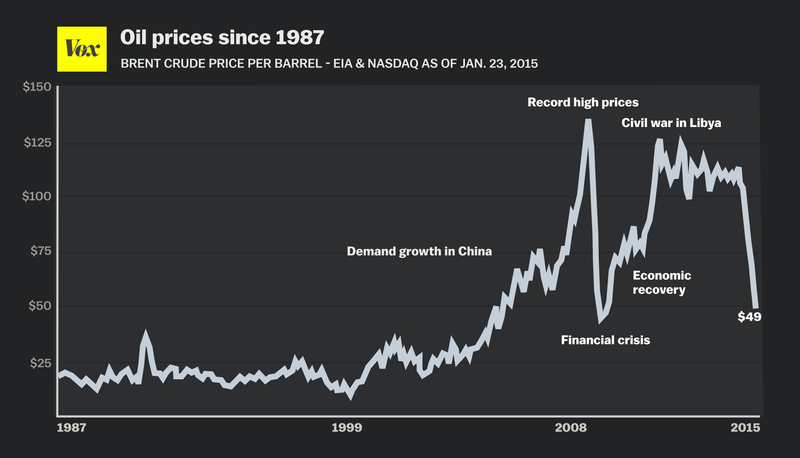Low oil prices are great for consumers such as the U.S. and Japan, but what are the long term economic and environmental impacts?
Some years ago, President Obama spoke of the need to find alternative energy sources. Fracking, has come to the forefront as an alternative energy source or method with economic benefits. Fracking is an unconventional method to find crude oil using the horizontal drilling of shale. Fracking is a somewhat slang term that refers to hydraulic fracturing. This method allows drilling for oil from difficult-to-drill places. Fracking has been the reason that the United States has been able to increase oil drilling production and to have created a greater supply than demand. This increase in supply has led to lower overall oil prices.
This excess in supply cannot last forever according to Shell Oil President, John Hofmeister. He claims that when the excess is depleted, prices could return to previous highs around $4 a gallon at the pump..
Hofmeister also claims that the recent passing of the Keystone XL Pipeline will be vetoed by President Obama and that the Pipeline would not add any significant impact on fuel prices in the near future. Hofmeister hopes the next President will look out for the future of the country. With his expertise in the field, he hopes that the States will move to the use of natural gas. According to Hofmeister, the benefits would be tremendous, ¨You can have ethanol and methanol for passenger cars, CNG (compressed natural gas) and LNG (liquefied natural gas) for trucks and trains. Natgas “takes the pressure off oil. And it also ends the need for the U.S. to import oil¨.
The eyes of the world have been on OPEC to see their next move. OPEC is the Organization of Petroleum Exporting Countries. This cluster of countries that creates 40 percent of the world’s exported oils has the rest of the world on its strings in term of controlling oil related issues. OPEC plans to undercut U.S. oil producers. OPEC knows that they cannot keep North Dakota flowing with oil for long. Plus, it is an expensive process for America. They will keep production high for now in order to stay with the pace. Then, they will slowly raise prices to achieve their long-term goal of undercutting other oil suppliers.
Fracking is at the center of much debate in the United States right now. On the one hand, there are all of the economic benefits that we are realizing in terms of lower gas prices at the pump. For decades OPEC has virtually controlled the prices of oil by increasing and decreasing production and supply. Fracking in the United States seems to add an unsettling variable into the mix. It seems that no longer does OPEC dictate the production, supply, and price of oil. The idea of the United States becoming one of the largest producers of oil seems even more improbable. Much of the debate around fracking is related to the impact on the environment. What is the impact on the lands where fracking is being conducted? Many chemicals are used in the fracking process, some of which are known carcinogens. When fracking is completed, many of these chemical remain in the ground. Many of these chemicals are also released into the air. Apparently the full impact and consequences of fracking are not fully understood. Our collective judgment may even be somewhat clouded in that the fracking method has changed the OPEC price control of oil. In the end we need to understand the implications of these possibilities, and make the best choice possible.


